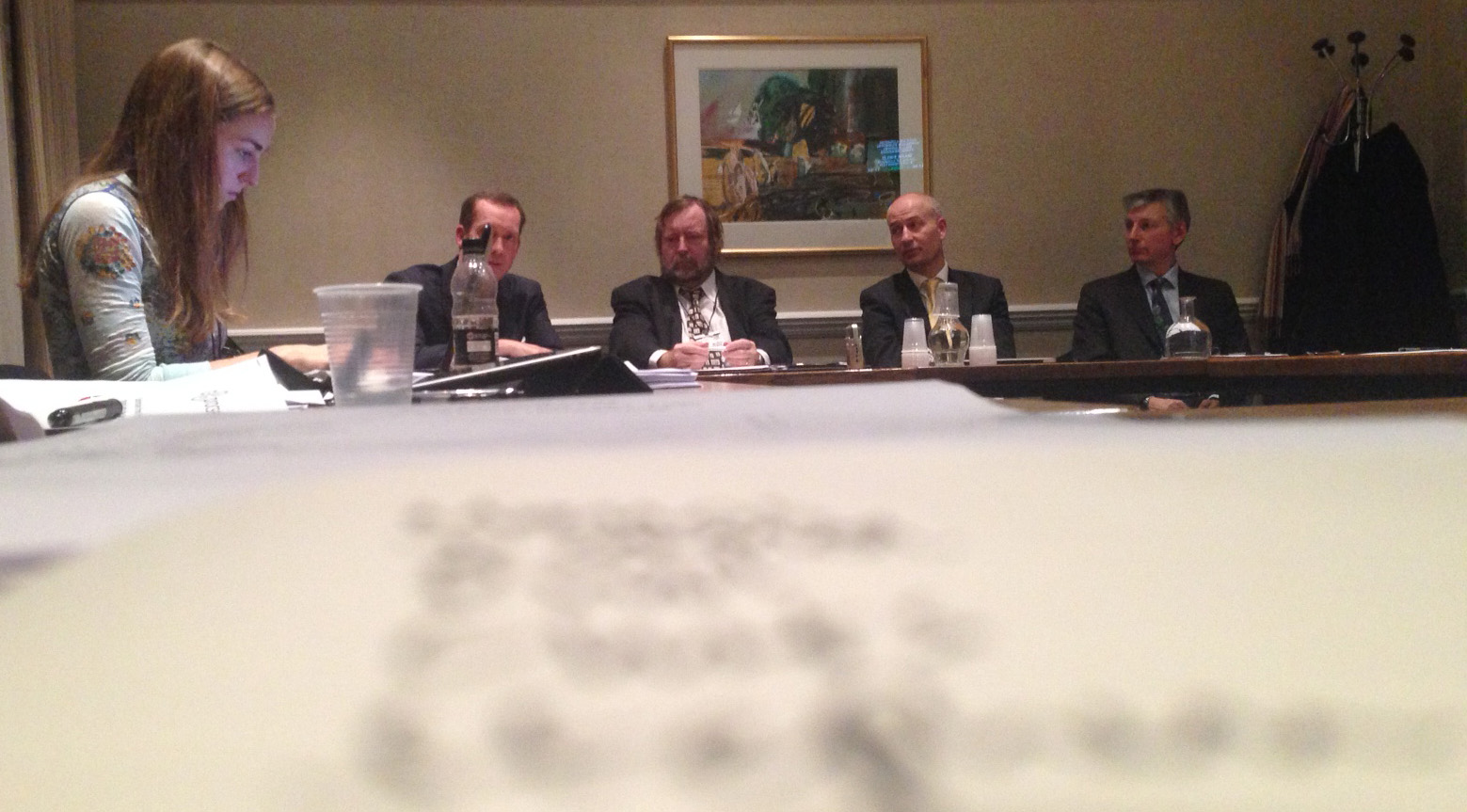Israel Aerospace Industries (IAI) has revealed it is now managing its entire procurement and financial activities with its suppliers in a paperless and automated environment.
Over 3,000 suppliers exchange over 20,000 documents each month – from RFPs through purchase orders and invoices to payment confirmations – creating an efficient and environmentally-friendly process with saving of up to 50% in operational resources compared to the manual procure-to-pay process previously in place.
This transformation is enabled by the Nipendo Supplier Cloud platform, which allows organizations to electronically collaborate with all of their trading partners while enabling seamless integration with their ERP systems. With over 3,000 IAI suppliers using the platform and more than 90% of invoices electronic, paperless process enables dramatic error reduction, savings of up to 50%
 From left to right, Caitlin the stenographer, Luke McKeever from OB10, Tim Coleman from the Federation of Small Businesses (FSB), Nigel Taylor from Taulia and Chair of UKNeF, Nigel Clifford from Procserv and to the far right, the coat stand.[/caption]
The coat hanger mishap wasn't the only surprise. The Inquiry that I was privileged to be a part of, sat on Tuesday of this week, the day after an intense, all-day debate hosted by the UK National e-Invoicing Forum (UKNeF) during which I sat with Ian Burdon and Peter Smith, both of whom brought fresh and expert views and insights to the public sector e-invoicing discussion. These two days, the UKNeF meeting and the Parliamentary Inquiry, led me to some conclusions about the direction of electronic invoicing in the UK and they were conclusions that I would absolutely not have predicted.
From left to right, Caitlin the stenographer, Luke McKeever from OB10, Tim Coleman from the Federation of Small Businesses (FSB), Nigel Taylor from Taulia and Chair of UKNeF, Nigel Clifford from Procserv and to the far right, the coat stand.[/caption]
The coat hanger mishap wasn't the only surprise. The Inquiry that I was privileged to be a part of, sat on Tuesday of this week, the day after an intense, all-day debate hosted by the UK National e-Invoicing Forum (UKNeF) during which I sat with Ian Burdon and Peter Smith, both of whom brought fresh and expert views and insights to the public sector e-invoicing discussion. These two days, the UKNeF meeting and the Parliamentary Inquiry, led me to some conclusions about the direction of electronic invoicing in the UK and they were conclusions that I would absolutely not have predicted.

